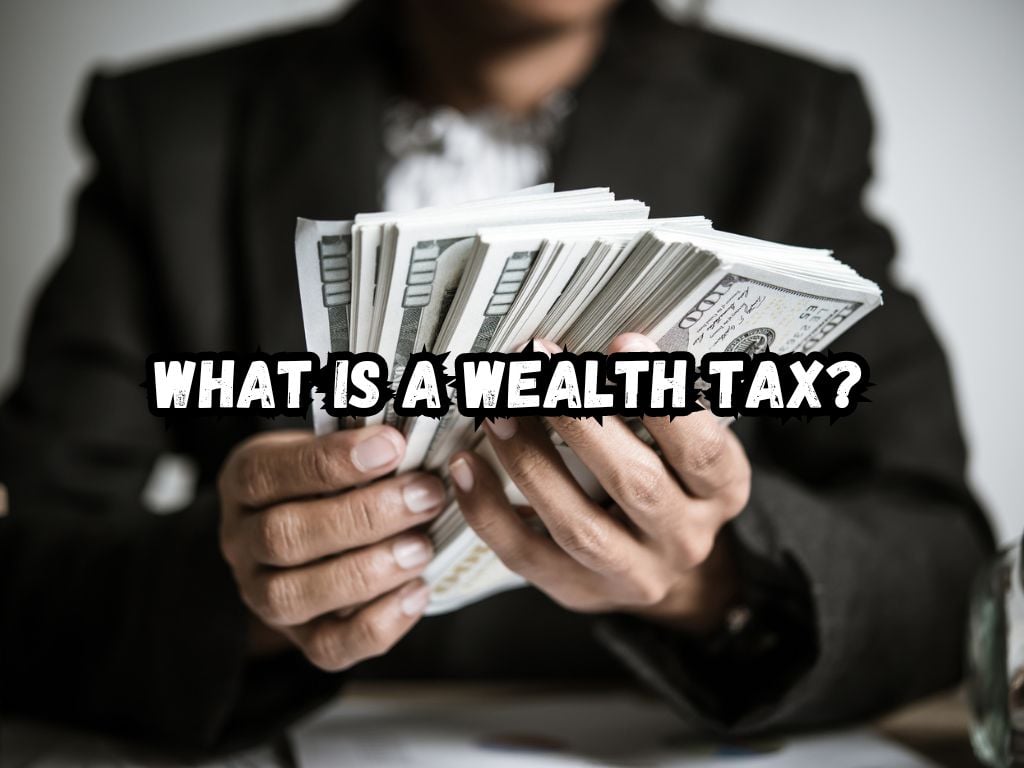Understanding the complexity and implications of a wealth tax is crucial in today’s economic landscape.
In navigating through the myriad of taxations that affect citizens globally, wealth tax stands out due to its direct focus on the ownership of assets rather than income or consumption.
This article aims to provide a comprehensive overview of what a wealth tax is, examples from various countries, its advantages and disadvantages, and the broader ethical and economic debates it sparks.
What Is a Wealth Tax?
A wealth tax is a levy on the total value of personal assets, including bank deposits, real estate, and personal property. Unlike income tax, which taxes earnings, or capital gains tax, which taxes profit from the sale of assets, a wealth tax is concerned with the value of the assets themselves.
The history of wealth tax traces back to ancient civilizations but has seen a resurgence in discussions due to growing economic inequalities.
The purpose of a wealth tax is twofold: to generate government revenue without discouraging economic activity, and to redistribute wealth in society. It represents an effort to address wealth concentration and provide a means to fund social programs.

Examples of Wealth Tax Globally
Countries implement wealth taxes in varied forms. Switzerland is notable for its comprehensive wealth tax system, taxing total personal wealth.
France, on the other hand, introduced a wealth tax but transformed it into a tax that focuses solely on real estate, demonstrating the flexibility in wealth tax application.
These examples show that there is no one-size-fits-all approach to wealth taxation. Each country tailors the tax to suit its economic and social objectives, with mixed outcomes on effectiveness and public acceptance.
Pros of Wealth Tax
- Revenue Generation and Deficit Reduction: A primary advantage of wealth taxes is their potential to significantly boost government revenues. By tapping into the vast assets of the wealthy, countries can reduce budget deficits and fund essential services.
- Wealth Redistribution and Social Equity: Wealth taxes aim to reduce the gap between the rich and the poor. By redistributing wealth, they can promote social equity and reduce the economic divide.
- Discouraging Wealth Hoarding: By taxing stored assets, a wealth tax encourages the rich to invest or spend their money, potentially stimulating economic activity and innovation.
- Economic Stimulation through Spendings: The additional revenue from wealth taxes can fund public projects and social programs, invigorating the economy through increased government spending.
Cons of Wealth Tax
- Risk of Double Taxation: Critics argue that wealth taxes unfairly penalize savings and investments, which are already taxed in various forms. This could discourage saving and investing, considered pillars of personal financial stability and economic growth.
- Challenges in Valuation of Assets: Accurately assessing the value of diverse assets can be complex, making the implementation of a wealth tax administratively challenging.
- Potential to Discourage Investment: The prospect of a wealth tax might deter investment, as individuals and entities could move their assets to countries without such taxes, potentially harming the home country’s economy.
- Administrative and Compliance Difficulties: The complexity of determining asset values and tracking global wealth can make wealth taxes difficult and expensive to administer.
Ethical and Economic Debates Surrounding Wealth Tax
The ethical argument for wealth taxes centers on fairness and social justice, suggesting that those with greater wealth should contribute more to society.
Conversely, opponents argue that wealth taxes penalize success and discourage wealth creation and investment, which are essential for economic growth. Economically, the debate often focuses on the efficiency of wealth redistribution and its impact on investment and fiscal stability.
While some theorists argue that wealth taxes can reduce economic disparity without affecting economic growth negatively, others claim that such taxes could lead to capital flight and reduce investment, thereby harming the economy.
The Impact of Wealth Tax on Different Economic Classes
- Effects on High-Net-Worth Individuals: Wealth taxes target the rich, requiring them to pay a portion of their assets annually. This could lead to liquidity issues for those whose wealth is tied up in non-liquid assets.
- Implications for Middle and Lower Income Groups: While not directly targeted, these groups could benefit from enhanced public services and social programs funded through wealth taxes, potentially improving social mobility and economic equality.
- Society-Wide Economic Impacts: The broader impact on the economy can vary, from stimulating consumer spending and government programs to potentially deterring investment and economic growth.

Wealth Tax Policies and Reforms
Current proposals and political stances on wealth tax vary globally, reflecting differing views on economic inequality and fiscal policy. Some advocate for heightened taxes on the wealthy to fund public services and reduce debt, while others caution against the potential economic drawbacks.
Understanding how wealth tax interacts with other tax laws is crucial for evaluating its overall impact. A well-designed wealth tax could complement existing taxes, contributing to a more equitable tax system without undermining economic growth.
Frequently Asked Questions
What is the rationale behind implementing a wealth tax?
The primary reasons include generating government revenue, reducing economic inequality, and discouraging the hoarding of wealth.
How can a wealth tax contribute to reducing inequality?
By redistributing wealth from the richest segments of society to fund public services, it can level the economic playing field.
What are the challenges in administering a wealth tax?
Key challenges include accurately valuing a diverse range of assets, ensuring compliance, and managing the potential for capital flight.
Conclusion
The wealth tax debate underscores the challenge of balancing wealth accumulation with fiscal fairness. While wealth taxes can generate significant revenue and reduce inequality, they also pose administrative challenges and could potentially discourage investment.
Ultimately, the question of whether to implement a wealth tax involves not just economic considerations but values—how we define fairness, economic success, and the role of government in redistributing wealth.


 Tags:
Tags:










